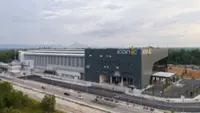IN the early 1990s, Chew Seok Ching was a hawker selling char koay teow, laksa and ais kacang from a stall outside her village home in Batu Kawan, Penang.
After several years of hardship, she saved enough to open a seafood restaurant in 1995, the first in the constituency.





